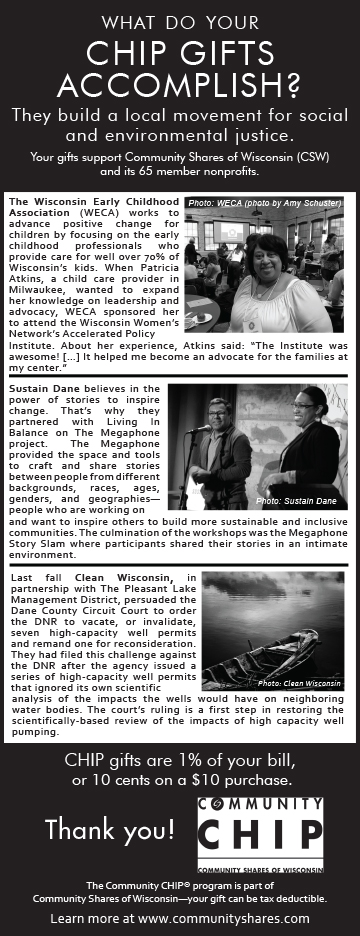
by Angela Pohlman, Category Manager—Wellness
If you are interested in environmental or food justice issues, you have probably heard of Colony Collapse Disorder (CCD) and are rightly concerned.
Colony Collapse Disorder is the name given to the phenomenon when all of a hive’s worker bees disappear, leaving the queen, larvae, and some nurses alone in the hive. They cannot survive without the food gathered by the worker bees, so the hive ends up dying. It is unclear why this happens, but it has been going on since around 2006 when beekeepers began reporting losing 30 to 90% of their hives. The loss numbers were shocking, and while the reports of CCD have gone down since then, it is still a concern, and is not expected to go away anytime soon.
Current theory
The current theory is that a combination of stressors drive the workers away from the hive, including habitat encroachment/destruction; pesticides/herbicides; and the stress of being transported to different areas to act as pollinators for agriculture, such as almond farms. Concentrating bees in one area could share diseases and parasites.
You’ve probably heard the statistic—one in every three bites of all food we eat has to be pollinated. This is all truly frightening. But luckily, there is plenty we can be doing as consumers.
What can we do to support bee populations?
Purchase locally made honey and honeybee products.
•Delicious honey
•Also look for products made with honey as the sweetener
•Locally made mead
Purchase other bee products too! Most beekeepers cannot rely on honey only production. These are important sources of revenue.
These include:
•Pollen: Pretty popular for those with allergies.
•Propolis: Look for this in the supplement section.
•Beeswax: DIY bodycare, y’all!
•Beeswax-based products, such as:
•Candles: Classic.
•Bodycare products such as lotions, lip balm, etc.
•BeesWrap: A reusable replacement for plastic wrap
Any other ideas?
•Reduce your personal use of pesticides.
•Encourage pollinators to move into your yard.
•Consider replacing boring, high-maintenance lawn with plants and flowers.
•Plant local pollinator-friendly flowers and plants in your yard. You can find lists of regional, native plants that support pollinators online. Not only is this an essential food source, also it provides important nesting sites and protection from predators.
•Make or purchase a bee house. This provides additional options for bees for shelter. You can find easy how-tos online. And they are super cute.
•Talk to your family, friends, and neighbors about the importance of pollinators. A little education goes a long way. The bees will thank you for it. Or they would if they spoke.
•Buy organic. This reduces pesticide exposure for our important pollinators. It also supports growing organic practices which will benefit pollinators all over the country.
•Buy wildcrafted/harvested. Buying product outside of regular agriculture supports natural landscapes and gives bees variation in their nectar sources. It’s not easy to find much produce that is made this way, but you can find some supplements and incense that use this practice.
•Buy from companies that support pollinators. While there is not a widely used certification yet, many companies are choosing to call out what they are doing to support pollinators. Read labels; buy organic.
Host Defense Initiative
“In 2014, Paul Stamets (leading mycologist, visionary and TED Talk presenter), Steve Sheppard (chair of department of entomology, Washington State University) and the Washington State Beekeepers Association teamed up in a research initiative called BeeFriendly™ to help reverse devastating declines in the global bee population that are critically threatening the world’s food security.
“In 2015, 300 sets of bees consumed Host Defense® mushroom extracts via their feed water. The experiments were designed to measure how mushroom extract supplementation impacted viral burdens and longevity.
“Host Defense extracts, especially Reishi and Chaga, showed substantial benefit to honeybees, including extended longevity and reduction of their viral burden by more than 75%.” (beefriendlyinitiative.com)
To support this incredible research, we will have select Host Defense products at 25% off for all of May and June for Owners. Host Defense will use the proceeds to make a large donation to Washington State University’s BeeFriendly Initiative.
To celebrate the Host Defense initiative, try this recipe featuring Honey and Mushrooms from BBC Good Food.
Honey & Gorgonzola Mushrooms
Sounds strange, but delicious.
4 portabellas or large, open cupped mushrooms
Honey
7 ounces of Gorgonzola or blue cheese, crumbled
Directions: Grease an oven-proof pan and preheat oven to 350ºF. Remove the stalks of the mushrooms. Brush a little honey onto the gills of the mushrooms. Crumble the cheese and place on top of the mushrooms. Place into the oven a bake for 15–20 minutes or until the cheese is melted and the mushrooms cooked.

